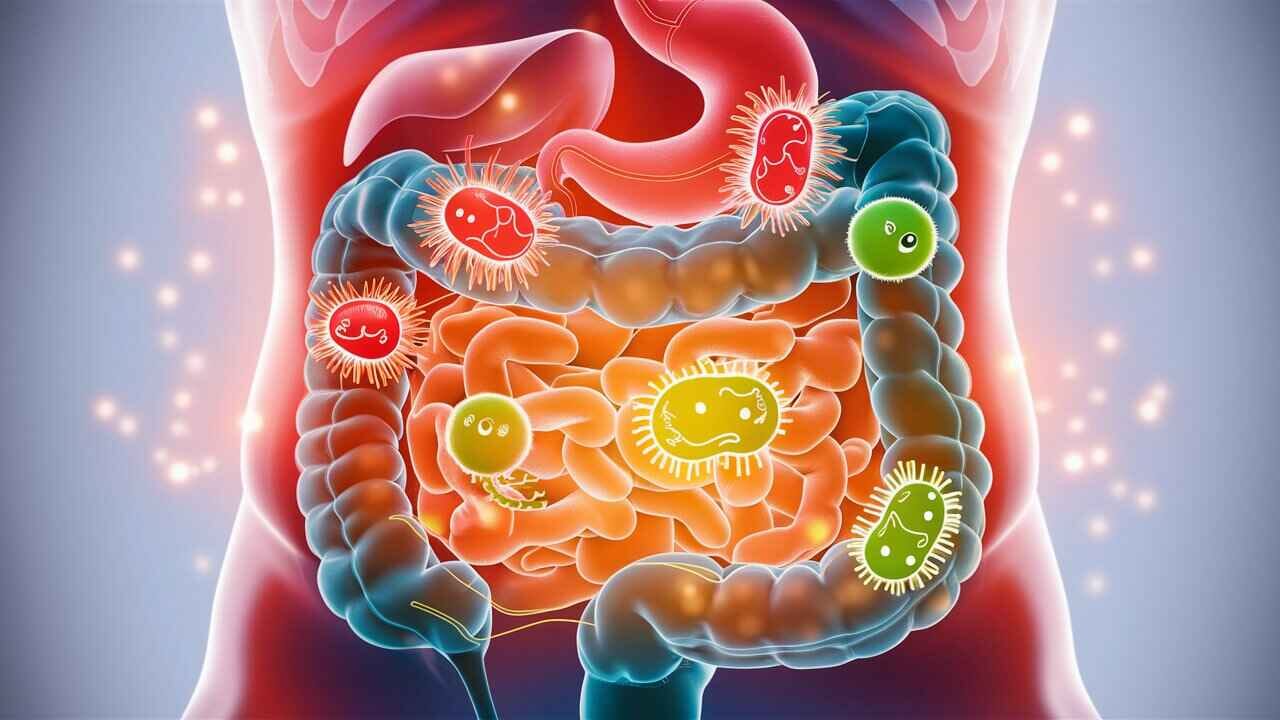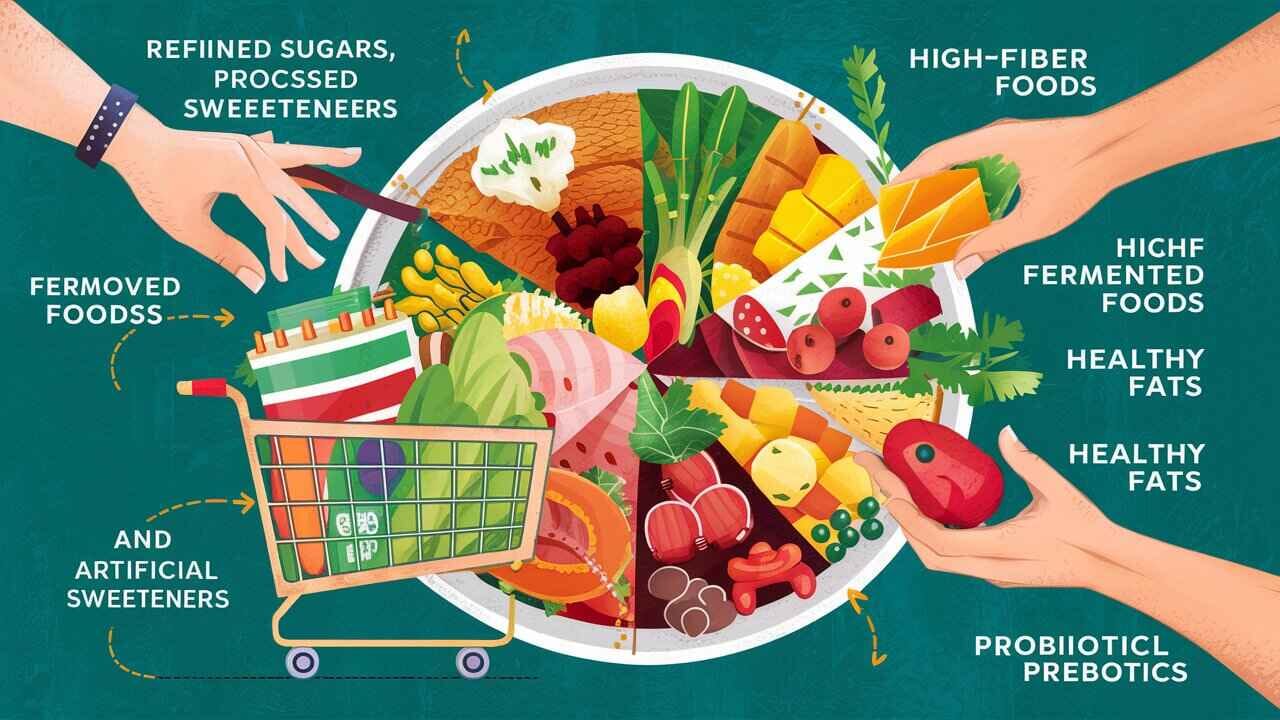
The human gut microbiome is a complex community of trillions of microorganisms. It influences our digestion, immune system, and even mental health. However, When bad gut bacteria attack or dominate our bodies, they disrupt this delicate balance and harm our health. So, we want to know how to starve bad gut bacteria and nurture good bacteria, which is vital for maintaining a healthy gut biome.
Table of Contents
- What is bad gut bacteria?
- Signs of an Imbalanced Gut
- Tips for a Healthy Gut Biome
- How to Starve Bad Gut Bacteria
- The Role of a Gut Reset
- How to Heal Your Gut
What is bad gut bacteria?
Bad gut bacteria are harmful microorganisms in a gut that can throw it out of balance causing digestive problems, inflammation, and other health problems. The good news is that these bacteria do fine with our crappy eating, stressed-out living, and no exercising.
Examples include:
- Clostridium difficile (C. difficile): Linked to severe diarrhea and colon inflammation.
- Escherichia coli (E. coli): Certain strains can cause food poisoning.
- Candida: Although a fungus, overgrowth can disrupt the gut balance.
An overgrowth of these harmful bacteria can lead to symptoms like bloating, fatigue, poor immune function, and even mental health issues due to the gut-brain axis.
Signs of an Imbalanced Gut
An unhealthy gut manifests in numerous approaches, consisting of:
- Digestive problems: Bloating, constipation, diarrhea, or gas.
- Skin issues: zits, eczema, or rashes.
- Intellectual health demanding situations: anxiety, depression, or brain fog.
- Frequent Infections: A weakened immune reaction.
Spotting these symptoms early permits you to take steps to repair balance.
Tips for a Healthy Gut Biome
Stress Management
Chronic stress triggers cortisol which is harmful to gut health by changing the gut microbiome. Mindfulness, yoga, and meditation are great techniques to use to reduce stress.
Quality Sleep
Sleep is very important for gut health because it controls the circadian rhythm of the gut bacteria. As a goal, get 7 to 9 hours of quality sleep every night.
Regular Exercise
Activity is a physical activity that helps maintain gut bacteria diversity and motility and reduces constipation. Simple things like walking or cycling will make a difference, even moderately.
.png)
How to Starve Bad Gut Bacteria
Dietary Changes
Sugar and processed foods thrive on bad bacteria. The most effective way to reduce their growth is by changing your diet.
Foods to Avoid:
Refined Sugars: These fuel harmful bacteria: in candy pastries and sugary drinks.
Processed Foods: Low in fiber and nutrients, chips, frozen meals and fast food are all things.
Artificial Sweeteners: These can disrupt the microbiome found in diet sodas and sugar-free products.
Foods to Include:
High-Fiber Foods: Good bacteria grow in leafy greens, broccoli, and asparagus.
Fermented Foods: Probiotics are yogurt, kefir, and kimchi.
Healthy Fats: Nuts, Seeds, and Avocados provide anti-inflammatory benefits.
Probiotics and Prebiotics
Probiotics: These are the live beneficial bacteria you introduce to the gut. Good sources are foods like sauerkraut, miso, etc.
Prebiotics: Fiber that's not digested and feeds good bacteria. Prebiotic-rich foods include bananas, Onions, Garlic, and oats.

The Role of a Gut Reset
Detoxifying the Gut
A gut reset involves eliminating inflammatory foods and focusing on a clean, nutrient-rich diet. This allows the gut to purge harmful bacteria and toxins.
Reintroducing Healthy Foods
Once detoxified, gradually reintroduce gut-friendly foods like fermented products, whole grains, and lean proteins to restore balance.

How to Heal Your Gut
Repairing the Gut Lining
The lining of the gut also protects the body from toxins by not allowing the toxins to pass through the bloodstream. To repair it:
Consume Bone Broth: Filled with collagen, it helps to strengthen the lining of the gut.
Take Supplements: Zinc and L-glutamine are helpful but supplements are to be taken with professional consultation.
If there was one superfood termed as such, this awesome and potent food deserves it; it can serve as the cornerstone in giving your body a fighting chance as you incorporate anti-inflammatory foods into your diet.
Turmeric and Ginger: These likewise alleviate inflammation of the gut and bring out recovery.
Green Tea: Some of its components, including antioxidants combat unhealthy gut bacteria.
Omega-3 Fatty Acids: Salmon and walnuts contain these, which are excellent anti-inflammatories.
A balanced gut microbiome is important for your health. Promoting a healthy gut becomes easy if you avoid eating foods that feed bad bacteria, live a gut-friendly lifestyle, and practice stress-reducing habits. Remember, building your gut health is a process, not one thing you will get to the day you arrive. If these strategies can be implemented consistently, there will be long-term benefits.

